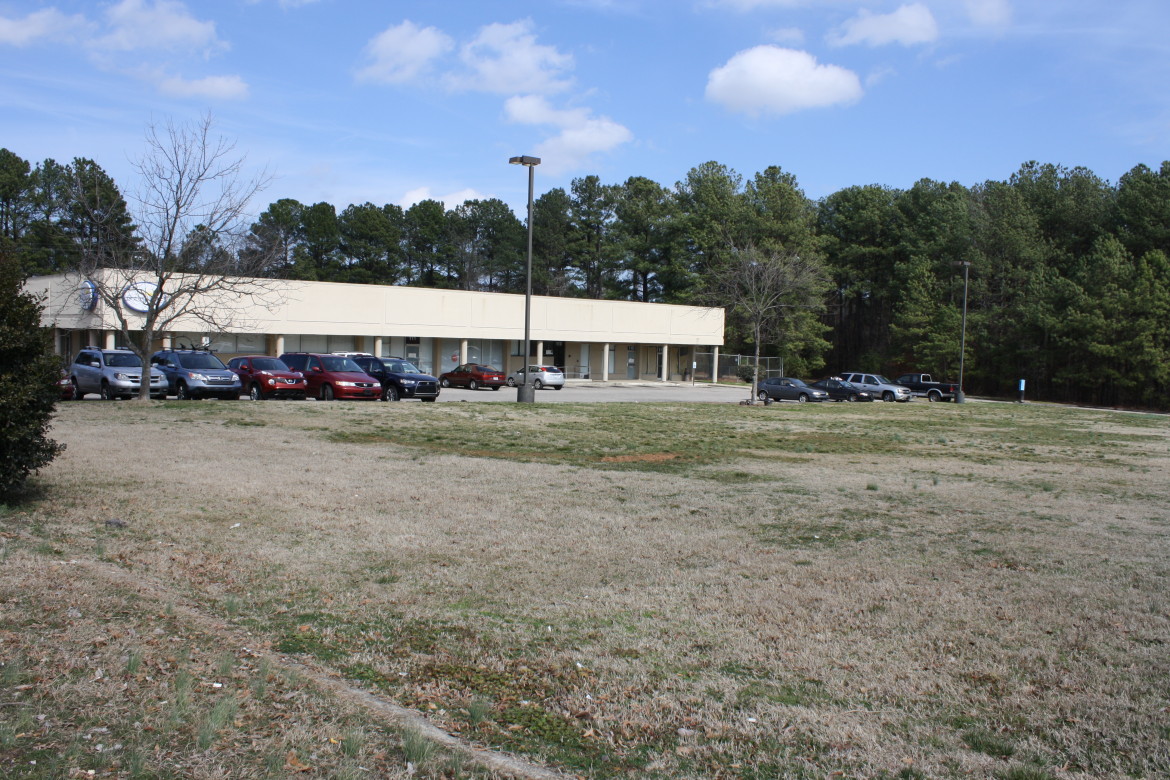A South Raleigh neighborhood association claims it had no knowledge that a project to provide temporary homes to recovering addicts and people with mental illness was back on the table for their area.
Representatives of SouthLight Inc. want to build a 32-bedroom housing complex for people suffering from substance use disorders or mental illness. The addition would be built on the same property as SouthLight’s treatment center in Southeast Raleigh.
View 2101 Garner Rd in a larger map
Raleigh city councilors are considering a $600,000 no-interest loan for the project. SouthLight has also applied for a grant in the same amount from Wake County.
Charissa McCullers, president of the Biltmore Hills Neighborhood Association, said the group learned that SouthLight would be going forward with a housing community Feb. 13 — the day it was to be presented at the South Citizens Advisory Council.
McCullers said SouthLight hasn’t been in touch with the association since their last meeting in April.
The SouthLight loan and project were approved by the Council’s Budget and Economic Development Committee last month, but the issue was held until SouthLight could meet with the community.
After a heated question-and-answer session between SouthLight representatives and residents at the Feb. 13 meeting, CAC members overwhelmingly voted against the project. The vote does not technically prevent the council from taking action, but the final decision will be delayed for another month in order for both groups to meet and for the city staff to answer lingering questions.
Under the city’s Scatter Site Housing Policy, a supportive housing facility like this would not normally be permitted in this area. The policy aims to spread such supportive housing facilities to areas of the city that don’t have a majority of minority or low-income residents.
Councilors are considering this exception because SouthLight already owns the property.
SouthLight CEO Tad Clodfelter said the project has been in the works since the non-profit purchased the land in the mid 1990s. Funding often prevented the project from moving forward.
Clodfelter said the residents will come to the complex in various stages of recovery and can stay up to six months. During that time residents will undergo treatment, work on relationship building, life skills and vocational skills. Facility staff will help residents reconnect with the community, travel to job interviews and look for permanent housing.
The facility will be monitored around-the-clock by a security staff.

Ariella Monti
The open lot where SouthLight representatives hope to build supportive housing. Photo by Ariella Monti.
Safety was the biggest issue for residents at the South CAC meeting, who mostly expressed concerns about the potential residents that may have criminal histories. McCullers said the complex will be built behind an at-home nursery school.
McCullers said neighborhood residents often found out about the project’s progress through newspaper articles rather than from direct contact with SouthLight. McCullers said the project information they received from SouthLight was never clearly defined and was constantly changing.
“We’re very sympathetic to the project,” McCullers said. “And we understand that there is a need for organizations such as SouthLight. We even understand that this was the intent when the land was purchased in 1996, but a lot of things have changed since then.”
Councilor Eugene Weeks, who requested the vote be delayed, said that it seems as though SouthLight had been discussing the project with neighbors in an apartment community across the street, but never went further into the community to the homeowners.
Weeks said he will make sure city staffers know more details, including the admittance policy and background of prospective residents. Weeks said that if the city can answer all those questions, it might be enough to satisfy the residents to move forward with the project.
Conversations between SouthLight and the association will continue at another meeting tentatively scheduled for March 10. McCullers said the association wants to have a good relationship with SouthLight, but won’t support the project until there is full disclosure.
Clodfelter said he is looking forward to continuing the conversation with the association.
“At the CAC meeting, SouthLight sincerely heard the overarching concerns of the neighborhood association and takes those concerns very seriously,” he said.
